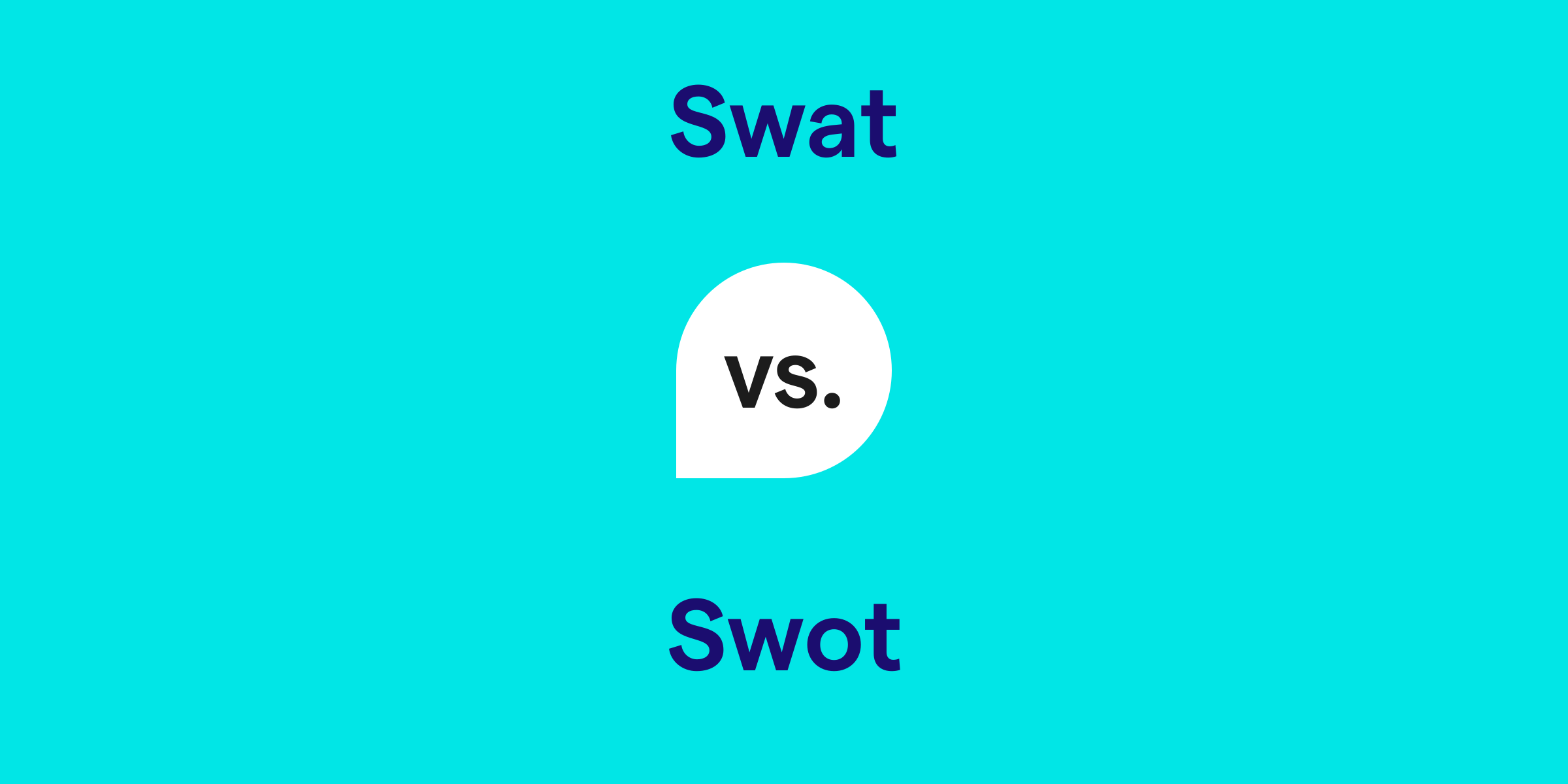Swat vs. Swot: What's the Difference?
Swat and swot are words with distinct meanings and applications. Swat denotes a hitting action or refers to a specialized police unit - Special Weapons and Tactics. It is commonly used in contexts requiring forceful intervention or in reference to dealing with insects. Swot, on the other hand, has British origins and refers to the act of studying intensively over a short period of time, often to prepare for an examination. It can also be an acronym for Strengths, Weaknesses, Opportunities, and Threats, a strategic planning tool in business.

How do you use the word swat in a sentence?
Swat is generally used as a verb when describing the action of hitting with a sharp slap or strike. It may also be used when referring to action taken by law enforcement, such as a SWAT team's intervention. When discussing an insect, one might use the word to express the action of forcefully hitting it to stop it from buzzing or biting.
Examples of swat in a sentence
- She managed to swat the mosquito just as it landed on her arm.
- The SWAT team was called in to handle the hostage situation efficiently.
- During the summer picnic, we had to swat flies away from the food constantly.
How do you use the word swot in a sentence?
As a verb, swot refers to the act of studying hard, particularly before an exam. The noun form can mean a person who studies excessively. In a business context, SWOT is capitalized because it's an acronym for a structured planning method used to evaluate a project or venture's Strengths, Weaknesses, Opportunities, and Threats.
Examples of swot in a sentence
- He had to swot up on his French before moving to Paris for work.
- She's such a swot, always buried in her textbooks and not caring about going out.
- Our company conducts a SWOT analysis at the end of every quarter to understand our competitive position.
Swat and swot definition, parts of speech, and pronunciation
Swat definition:
Swat (verb) means to hit or crush something, especially an insect, with a sharp blow from a flat object or the hand. As a noun, it refers to the act of swatting, the noise made by a swat, or a special unit of law enforcement trained for high-risk operations.
Swat parts of speech:
Swat pronunciation:
Swat is pronounced as /swɒt/.
Swot definition:
Swot (verb) means to commit time to study intensively. As a noun, it means a student who studies excessively. SWOT, as an acronym, stands for a method used in business for strategic planning.
Swot parts of speech:
Swot pronunciation:
Swot is pronounced as /swɒt/, similar to swat but often distinguished in speech by context.
Swat (verb) means to hit or crush something, especially an insect, with a sharp blow from a flat object or the hand. As a noun, it refers to the act of swatting, the noise made by a swat, or a special unit of law enforcement trained for high-risk operations.
Swat parts of speech:
- As a verb: He tried to swat the fly with a rolled-up newspaper.
- As a noun: The swat at the mosquito left a smudge on the wall.
Swat pronunciation:
Swat is pronounced as /swɒt/.
Swot definition:
Swot (verb) means to commit time to study intensively. As a noun, it means a student who studies excessively. SWOT, as an acronym, stands for a method used in business for strategic planning.
Swot parts of speech:
- As a verb: She has been swotting for hours for the upcoming exam.
- As a noun: Known as the class swot, he always achieved top grades.
Swot pronunciation:
Swot is pronounced as /swɒt/, similar to swat but often distinguished in speech by context.
Swat vs. swot in a nutshell
Swat typically refers to the act of hitting sharply or to a specific type of police force, while swot denotes intense studying or serves as an acronym in strategic business planning. While they have similar pronunciations, their meanings diverge significantly, focusing on physical action and educational or strategic endeavors, respectively. Distinguishing their usage is key in academic, professional, and everyday language to convey the correct message.
Get AI Writing Assistance Wherever You Type
Make sure your vocabulary is on point and every punctuation mark is in the right place, no matter where you’re working. Grammarly works across more than 1 million websites and apps so you can improve your writing without copying, pasting, or breaking focus.

More Commonly Confused Words
Interest piqued? Pore (not pour) over other commonly confused words to help your writing reach peak (not peek) performance.